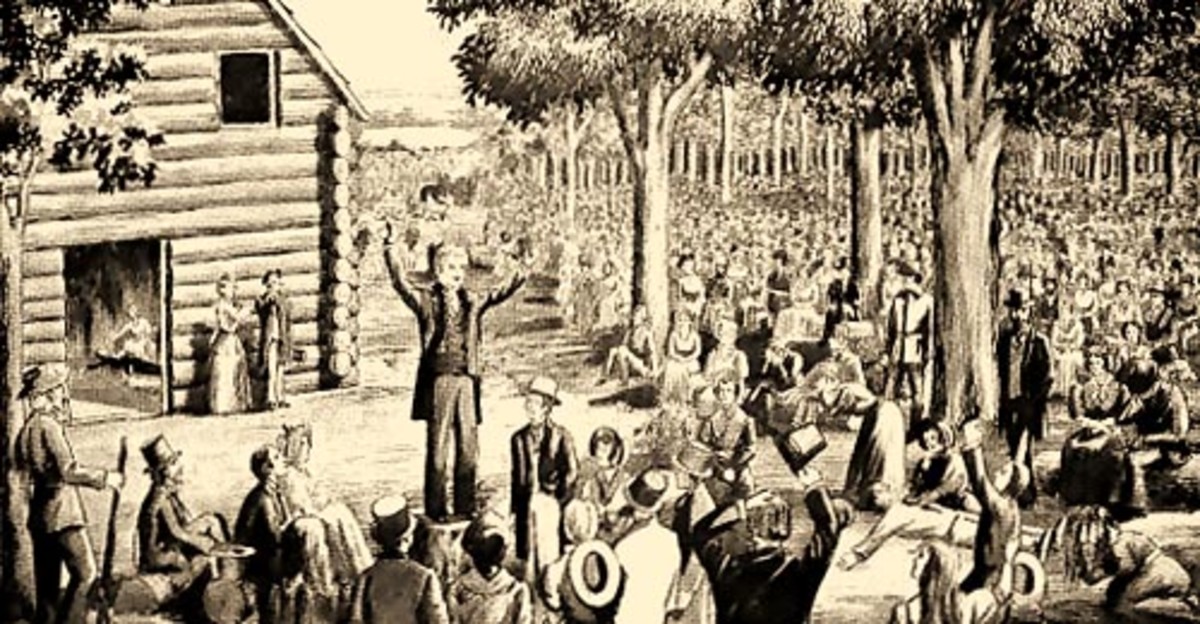Christian Divorce and Remarriage, Egalitarian (Episode II)

Episode II,The Right of Divorce Extended to Women
Christian Teaching: Egalitarian
In the Old Testament economy, the right to divorce belonged to husbands only. “While the woman could not divorce her husband, she could go before the court and compel him to divorce her if he had certain diseases, if he was engaged in certain obnoxious trades, made vows to her detriment, or forced her to make such vows” (Sherman E. Johnson: The Interpreterʼs Bible).
Flavius Josephus, writing in the last quarter of the first century, gives testimony to the helplessness of the Jewish wife if her husband chose not to divorce her. When recording the account of Salome (the sister of Herod the Great) divorcing her husband, Costobarus, Josephus writes: “But sometime afterward, when Salome happened to quarrel with Costobarus, she sent him a bill of divorce, and dissolved her marriage with him, though this was not according to the Jewish laws; for with us it is only lawful for a husband to do so; but not the wife; if she departs from her husband she cannot, of herself, be married to another, unless her husband put her away.” (Josephus, antiquities 15. 7. 13 [259]).
Under these circumstances a wife may still be held in an unhappy existence where she is unloved and uncared for; the husband would simply take another wife while ignoring the unloved one. Such practices were prevalent because plural marriages were allowed, under the Old Testament economy.
However, the event of Christ, and the establishing of His church, extended the prerogative of divorce beyond the husband to include the wife. Jesus alludes to the right of a wife to divorce her husband in Mark 10:12 (this passage will be examined thoroughly a little later). Moreover, the apostle Paul states the case clearly: “But if the unbelieving depart, let him depart. A brother or a sister is not under bondage in such cases” (1 Corinthians 7:15). We must take note here that even a “sister” is not to be held bound to a husband that leaves her.
Christian law was extended by the Apostle Paul, from sexual impropriety (as taught by Christ in Matthew 5:32), to include abandonment as indicated above. According to the Shepherd of Hermas (Mandates 4), and from the Second Apology of Justin Martyr (http://www.newadvent.org/fathers/0127.htm), we learn of a persecution that was brought upon the Christians for just such a practice of divorce.
The egalitarian nature of the Lordʼs church is demonstrated by the right to divorce and remarry being granted to both sexes, as is seen in both the teachings of Jesus (Mark 10:11-12), and of the Apostle (1 Corinthians 7:15).
The Bill of Divorce and Remarriage: The phrase, “divorce and remarriage,” is redundant (although we use it repeatedly in this work), in that the “bill of divorcement” is the LICENSE to remarry. To validate this, one need only read the Words of Institution on divorce:
“... then let him write her a bill of divorcement, and give it in her hand, and send her out of his house. And when she is departed out of his house, she may go and be another manʼs wife” (Deuteronomy 24:1-2).
There is no confusion in the statement, “... she may go and be another manʼs wife.” The legal permission, granted by the “bill of divorcement,” to remarry is witnessed to by Josephus, where he said: “... but a wife, if she departs from her husband cannot of herself be married to another, unless her husband put her away.” (Antiquities 15. 7. 13 [259]). The putting away spoken of by Josephus is of course the “bill of divorcement” that only the husband could grant, under the Jewish law (i.e. Law of Moses).
The central thought of this treatise is that: The “bill of divorcement” is the license (legal permission) to remarry. Far too often, many in the Western world view divorce as intrinsically evil. But, as we have seen from the Words of Institution (Deuteronomy 24:1-4) that is simply not the case. In fact, the fundamental purpose for Yahweh granting divorce was to free a woman from an unloving, and possibly abusive, husband. In this case the womanʼs “bill of divorcement” announced, to whomever presented, her authority to remarry.
This truth is so often overlooked by those teachers who, not knowing the Word of God, wish to lay burdens upon people that are grievous to bear. These teachers remind one of the Pharisees of Jesusʼ day who EXPANDED the commandments from 10 to 613. Jesus said to his disciples concerning them: “... do not ye after their works: for they say, and do not. For they bind heavy burdens and grievous to be borne, and lay them on menʼs shoulders; but they themselves will not move them with one of their fingers. But all their works they do for to be seen of men: they make broad their phylacteries, and enlarge the borders of their garments” (Matthew 23:3-5).
The enlarging of their phylacteries and the hems of their garments were indicative of their enlarging of the law: namely, demanding more than the Word of God required. At some egotistical level, satisfaction was achieved by influencing their followers to live more severe lifestyles than required by their God-given law.
From time to time this kind of task-mastering is witnessed in the Lordʼs Church, and should be resisted. It should be resisted because it flies in the face of apostolic principal which levies no heavier burden “than the necessary things” (see Acts 15:28).
Sadly, this pharisaical spirit is at work motivating the unlearned to teach and preach against the institution of divorce. One cannot help but wonder: What sickness of the soul garners satisfaction from seeing a fellow Christian suffering in a matrimonial state of affairs where he or she is unloved and mistreated? Whether the abuse is physical or emotional matters little.
This is especially unfortunate since Father God instituted (through the prophet/lawgiver Moses) the Bill of Divorcement, for the specific purpose of freeing one from such circumstances (Deuteronomy 24 1-4); circumstances which arose because of the HARDNESS of the hearts of the men of Israel (Matthew 19:8).
In Conclusion: Having written these introductory remarks, I will attempt to do an E2 (Expository Exegesis) of the texts which speak to the subject of divorce, and by association, remarriage. Also, in the coming chapters one may expect to find the subject of adultery addressed in a straightforward manner.
This study will bring us to the following texts: Matthew 5:27-28, 31-32; 19:1-9; Mark 10:2-12; Luke 16:18; Romans 7:1-3; 1 Corinthians 7:1-40.
It would be impossible for me to overemphasize the need for having a thorough understanding of the above passages, so that we may be ready to give an answer to every person who asks us the reason for our faith (1 Peter 3:15). The Bible instructs us to: “Study to shew thyself approved unto God, a workman that needeth not to be ashamed, rightly dividing the word of truth” (2 Timothy 2:15).
The phrase “rightly dividing” is the Greek “orthotomeo” (Strongʼs #NT3718) meaning: to make a straight cut, or, to cut straight through. There is no zigging and zagging in order to miss or bypass an uncomfortable clause, or text.
With the Holy Spirit of God as our guide, we will attempt to follow Paulʼs instructions, as here given, to his son Timothy.
Apostolically Speaking
☩ J L Hayes

Read More From the Bishop On Marriage and Divorce
- Christian Divorce and Remarriage, Episode I
This series of articles answers the all consuming question: May a Christian divorce and remarry? This is the first of many article to come on the subject. Be sure to read them all. - Marriage, As God Intended (Episode III, Christian Divorce & Remarriage)
This article examines the intention of God for marriage, in the beginning. What the Bible declares marriage to be is shocking to most. This is required knowledge for an understanding of divorce. - Divorce and Remarriage, Words of Institution (Episode IV)
Moses sets forth the "Words of Institution" for divorce and remarriage. In this writing we will review those words in an expository study. - Certificate of Divorce (Diviorce and Remarriage, Episode V)
Here, for the first time we discuss the power of the "Certificate of Divorce" as a licenses to remarry - both for the guilty and innocent parties. - Biblical Grounds for Divorce and Remarriage (Divorce and Remarriage, Episode VI)
Here we explore the biblical reasons for divorce and remarriage. Many are convinced that the Bible gives no reason for divorce, others accept only 1, but this writer demonstrates. at least, 4. - Biblical Examples of Divorce, Episode VIII
Examples are great teachers. A greater lesson can not be had that to witness how a biblical command was biblically executed. IN this study we will see just that in biblical examples of divorce. - The Biblical Status of the Divorcee, Episode IX
In this 6th episode on Divorce and Remarriage we examine the status of divorcees in the Bible. Here we answer the question: "What place does the divorced person hold in biblical society?" - The Words of Jesus On Divorce, Episode X
This article introduces all the words of Jesus concerning the subject of divorce. By this introduction of Christ's teaching on the subject we set a compass heading for further study. - The Apostolic Church, On Divorce - Episode XI
In this episode on divorce and remarriage we examine what the apostolic church (the Lord's church of the 1st century) had to say on the subject. - Yahweh Hates Divorce? (Divorce and Remarriage, Episode VII)
Since the Bible states that God hates "Putting Away," it is important to harmonize this with God allowing divorce, and participating in it Himself. This article addresses that particular issue.








